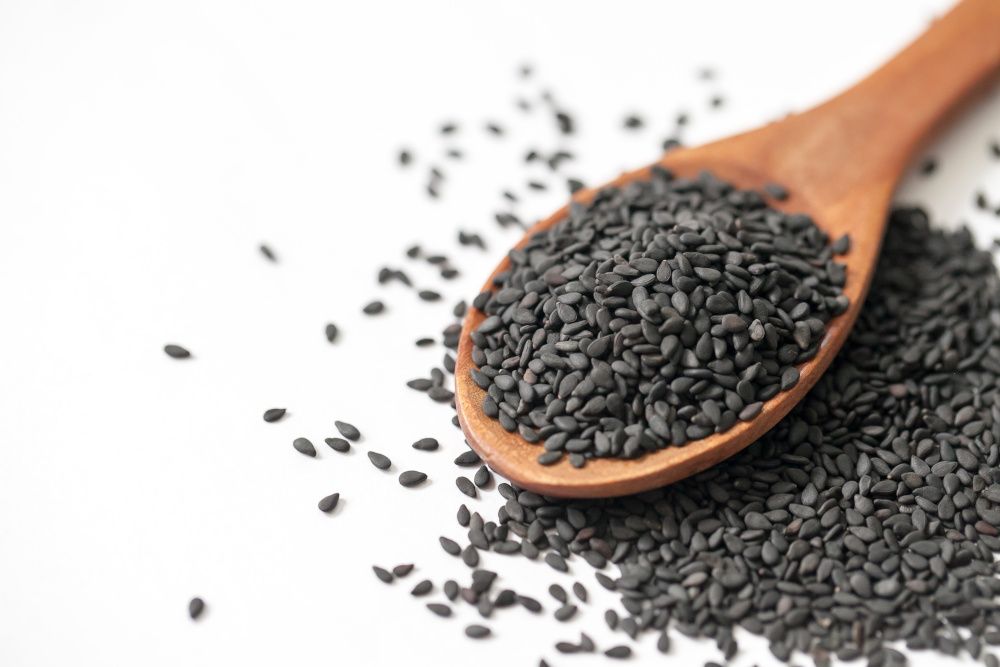Building a better black seed oil: TriNutra discusses what makes a superior extract at SupplySide West 2021
At the show, the company discussed recent research investigating what makes an ideal composition of black seed oil.
Black seed oil’s (Nigella sativa) popularity has grown in recent years. In 2020, Nigella sativa was one of the 40 top-selling herbal supplements in the U.S. natural channel, coming in at number 18, with sales growing 21.6% that year to nearly $6.5 million, according to the American Botanical Council’s (Austin, TX) latest Herb Market Report. Within the black seed market, extract quality can vary depending on the producer. At October’s SupplySide West trade show, Morris Zelkha, partner and CEO of black seed ingredient supplier TriNutra Ltd. (Ness Ziona, Israel), discussed recent research his company did to profile and investigate the composition of its own black seed oil—which is used to make its flagship ThymoQuin standardized cold-press Nigella sativa oil as well as its recently launched B’utyQuin Nigella sativa oil for cosmetic products—to determine what makes a better black seed oil.
Zelkha said the company wanted to understand why its ThymoQuin oil seemed to perform better than other black seed ingredients. In a recent study soon to be published in a peer-reviewed journal, Zelkha said, the company examined a range of black seed oil compositions to determine which ratio of thymoquinone, the main active constituent in Nigella sativa, and other constituents (specifically free fatty acid) showed the highest activity.
ThymoQuin’s level of thymoquinone is standardized to 3%. “With most of the black seed oil that’s available in the market…the level of thymoquinone is between 0.2% and 0.3%,” said Zelkha. “The highest can be 1.5% or in some cases even 2%.”
Black seed oil also contains free fatty acid, which is a natural result of enzymatic activity during processing as fat is oxidized. Levels of free fatty acid in a Nigella product can vary—a lot. “In oil for food, for cooking, free fatty acid needs to be in the level of up to 2%," said Zelkha. “The black seed oil that’s available today in the market [can be] at a level of 5% and in some cases even 20%.”
The amount of free fatty acid in a black seed oil can significantly impact the oil’s activity. In TriNutra’s study, the company looked at what happened when it raised and lowered the level of free fatty acid. It found that if the level of free fatty acid in an extract is too high, it lowers the efficacy of thymoquinone. For instance, said Zelkha, when the level of free fatty acid was raised from 2% to 10%, the activity of the extract “dropped” by 60%-70%. Zelkha said the company determined that its 3% composition of thymoquinone in ThymoQuin, and a 2% free fatty acid level, resulted in an oil with the highest activity.
He said TriNutra now wants to educate the market on what happens when the fatty acid profile of an oil is too high. “What we are saying is that thymoquinone has a very wide range of activities. It’s important to have it in the full spectrum, but it’s important to have it with the [right] level of free fatty acid. When the level of free fatty acid is too high, you are affecting the performance of the thymoquinone.”
Opening the Beauty Market
In addition to educating the public about what makes or breaks the quality of a black seed oil, TriNutra is presenting its black seed oil to the beauty market in the form of its new ingredient B’utyQuin. This Nigella sativa oil is suited for both beauty-from-within and topical products. B’utyQuin contains the same IP-protected composition as ThymoQuin.
“It’s a newer area for us because [until now] we have been focusing mostly on [black seed oil for] dietary supplements for preventing inflammation, antiviral, supporting the immune system,” said Zelkha.
So far, “very few” of the more than 500 studies done on black seed oil have studied the cosmetic effects of black seed oil, but TriNutra is looking to change that. Zelkha said the company is about to publish a study on the antiaging benefits of B’utyQuin. The ingredient is “a free radical quencher, and anti-inflammatory, so [it can act as a] free radical quencher for the skin,” he said.








